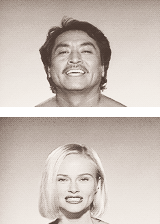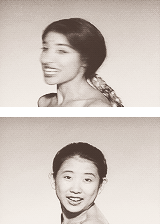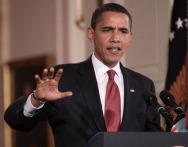|
The plot of the E.L. James bestseller book '50 Shades of Grey' reinforces harmful stereotypes to men and women.
1 Comment
 Singer Rihanna is a poster child for how we view and respond to abuse in this country. In her latest music video, “Man Down,” Rihanna is sexually assaulted and later shoots her attacker in the head. The Parents Television Council (PTC), along with organizations, Enough is Enough and Industry Ears, are petitioning to get the video pulled from television, citing that the murder sequence is too graphic (view the video below). Here are the official statements from the organizations: “Rihanna’s personal story and status as a celebrity superstar provided a golden opportunity for the singer to send an important message to female victims of rape and domestic violence. Instead of telling victims they should seek help, Rihanna released a music video that gives retaliation in the form of premeditated murder the imprimatur of acceptability. The message of the disturbing video could not be more off base…We call on Viacom to immediately stop airing the video.”-Melissa Henson, PTC’s director of communications and public education “‘Man Down’ is an inexcusable, shock-only, shoot-and-kill theme song. In my 30 years of viewing BET, I have never witnessed such a cold, calculated execution of murder in primetime. Viacom’s standards and practices department has reached another new low”-Paul Porter, co-founder of Industry Ears and a former voice of BET. “…Today’s youth need more positive strategies for dealing with conflict than those portrayed in the Rihanna video. This video is one among several frequently played on Viacom music video networks that lyrically or graphically glorifies violence…” -Pastor Delman Coates, founder of the Enough Is Enough Campaign. My issue with these statements is that they seem to underscore the significance of the sexual assault, advocate for the perpetrator and wrongfully propose that Rihanna is promoting violence (The entire song lyrically expresses remorse, ex. “I didn't mean to end his life, I know it wasn't right, I can't even sleep at night, can't get it off my mind…”). Two of the three organizations failed to even mention that Rihanna’s character was victimized, nor did they take the time to advocate or express remorse for those in peril after an assault. Violence on television is one issue, but the organizations neglected to acknowledge or give value to another massive problem: rape. This negligence is an indicator of how our society ignores and/or rationalizes abuse, and the second time that Rihanna is at the center of a publicized instance. When she was battered by her then-boyfriend, singer Chris Brown, in 2009, blog readers and some media suggested that Rihanna incited the attack; “she shouldn’t have been checking his phone and accusing him of anything,” “she was equally violent towards him; island people have tempers,” “she’s using this to sell records and get publicity.” One blog reader commented about “Man Down”: “she shouldn’t have been dancing so sexy with the guy; maybe he wouldn’t be so horny and rape her.” Now, not only is Rihanna someone that manipulated or deserved a physical beating, but she’s a promoter of violence and her video character is a cold-blooded killer. Why do we ignore and/or rationalize abuse? Men and women are societally-trained to believe that males are superior and women are inferior. The belief system is that women exist solely to be at men’s disposal. Men are such higher-form beings that they wouldn’t beat a woman without a good reason. In relation to sexual abuse, sex is an “essential need” for a man that must not ever be denied. And if women are sexy or alluring, it’s all to arouse men and they want to have sex. Our poor reaction to MALE VICTIMS is also a result of the belief that men are superior to women. It’s believed that if a male is abused physically or sexually by a woman, it’s because they allowed it to happen and you’re not a man if a woman can overpower you. In cases of same-sex abuse, biases about homosexuality come into play, exacerbating the situation. These attitudes and ideas prevent us from making efficient strides against abuse and providing useful supports for victims. Also, victims often don’t come forth because of our negative reactions. WAKE UP! I hate all forms of celebrity news media. This includes blogs, ironically. I hate them because they use a lot of “sneaky journalism.” They word and do things in crafty ways so they aren’t technically lying and won’t get sued; meanwhile America “drinks the Kool-Aid” and believes everything they’re told. People believe it because they wouldn’t expect “professional” news media to purposely lie. Everything comes down to dollars and cents. Celebrity news media has money to make and attention to get, and nothing makes money quite like scandal. At any cost, they will exaggerate, assume and “create” scandal for gain. Now that you know that they’re lying to you, I’m going to tell you all the clever ways that they do it.
1. Where they don’t have hard facts or answers, they provide suspicions, unconfirmed details and speculation. Here’s an example I got from a TV celebrity news program’s website about Michael Jackson’s memorial service a WEEK before it happened: “The service is liable to happen soon, and artists like Usher and Beyonce` will probably perform to pay tribute. Diana Ross and Quincy Jones, those closest to Michael over the years, are sure to be there to eulogize him.” It’s obvious that they didn’t have any confirmed details about his service; otherwise, they would’ve noted the details as valid and stated who they were confirmed by. Other indicators that the report was speculation are the use of the words “liable”, “probably” and “are sure”; these are all assuming and anticipatory terms. As it turned out, Beyonce` did not perform, and Diana Ross and Quincy Jones were not at the service. Instead of just waiting until they actually had some confirmed details, they jumped the gun with no evidence to gain ratings. 2. Tricky wording. As mentioned in point #1, wording plays a role in news media deception. Although the words in the Michael Jackson example were anticipatory, they’re designed to go unoticed and sound factual. The word “sure” is similar to “guaranteed”, and the viewer is supposed to walk away taking the story for fact. Another example of tricky wording is a magazine who called Mariah Carey’s “Glitter” album “low-selling.” The album went platinum, which is a million records. That’s not a small amount. A million is just “low-selling” in comparison to Carey’s other projects. Using the phrase “low-selling” perpetuates the idea the album was a failure. Media uses wording to get THEIR idea across, be it fact or not. Their main goal is to make things sound dramatic, scandalous or attention getting. 3. Sources (Or lack thereof). You’ve heard it a thousand times. Most stories printed in celebrity news magazines and on blogs use the phrases “sources say”, “insiders say” or “according to sources close to…” A report given on television today said: “Barbara Walters underwent heart valve replacement surgery on Wednesday and is expected to be released within the next few days, multiple sources tell us. Barbara's rep tells us, "No announcements are being made at this time." Despite a lack of a professional confirmation from Barbra’s staff, it’s maintained that Walters had her surgery via nameless, faceless sources. For all you know, the “sources” may not even exist. 3. Convenient Soundbytes. This happens ALL the time. Depending on what story they’re trying to sell, celebrity media will take a single sentence or 30 seconds out of an hour interview and use it to prove THEIR point, taking the statement out of context. For example, I could have said “It’s so hard to pick just one male actor as a favorite. I don’t have a favorite. I love all of them! Johnny Depp, Denzel Washington, Zac Efron, all of them!!!” But, the media could say “We asked her who her favorite actor was”, and then they’ll only play the part where I say Johnny Depp’s name. I’ve seen and read countless interviews in their entirety and gotten a completely different impression once I saw them, vs. the short clip I saw on TV. It makes a big difference. 4. Use of “experts” I’ve seen this on T.V. one too many times (mainly because my mom has to watch every celebrity news show known to man for some reason). The celeb media will bring on an “expert”, such as an alleged “child psychologist”, and have them analyze a clip or a photo, like of a celeb kid playing. Of course, the “expert” says something dramatic, like “The body language says that the child is distressed”, and the viewer walks away saying “oh well, that expert psychologist said this, so it must be true.” DON’T BUY IT!! And it when it comes out that their story was trash, they’ll put a correction in small print in the back of the magazine or briefly talk about it on television bringing little attention to it. Stop buying the stories people!! Start being more analytical about what you read and see-don’t be easily mislead! Pay attention to HOW things are presented. If an incident occurs between a small group of people (or just 2 people) and there’s no evidence of what took place, the media is probably speculating! If someone is allegedly so incredibly reclusive, hard to access, or a loner, how can the media really know ANYthing? Celebrity news media are never well intentioned. They just pretend to genuinely care; with Michael Jackson’s children, they pretend to be “so worried” about what exposure is going to do to them, when they’re the main ones showing paparazzi shots of them chillin’ at the pool!! When Anna Nicole Smith was alive, they portrayed her as a drugged up, drunken “has-been”, but once she died, she was a “beautiful princess with big dreams.” Unbelievable. They either build you up just to tear you down, or vice versa. Moral to the story: Be more aware of what you’re being fed! |
Society/CultureMy personal commentary on politics, race, gender, religion, social class, news media and several other things related to our society and culture. Archives
May 2014
Tags/Categories
All
|




 RSS Feed
RSS Feed